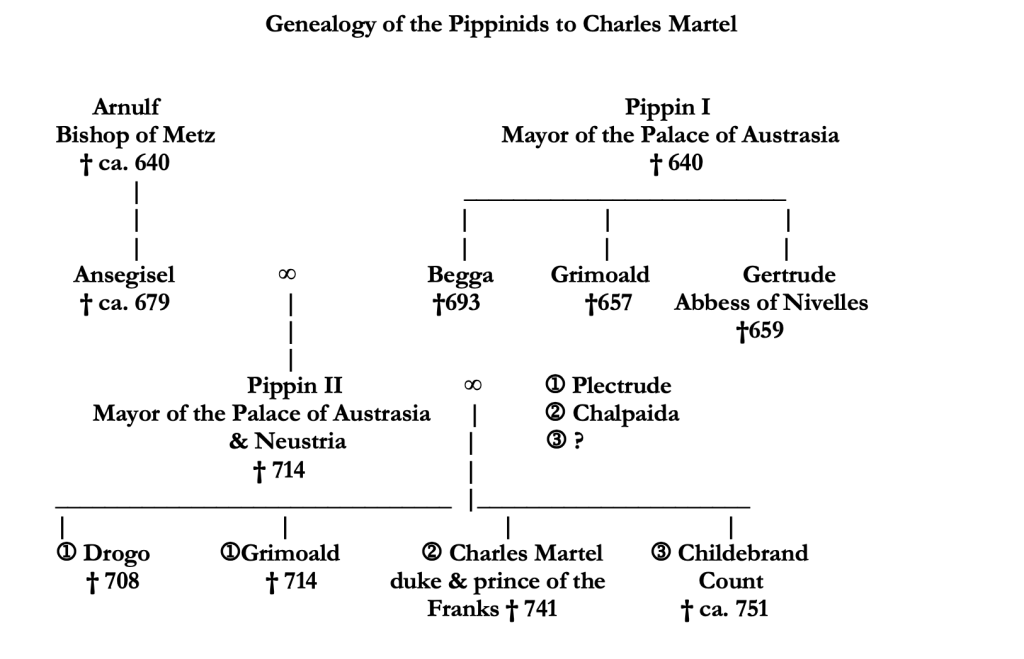PEOPLES: The Early Carolingians
Section Author: Barrie Brill, Langara College, Retired
Learning Objectives
- Explain the factors that led to the rise of the Carolingian dynasty
- Reveal the significance of the role of Pippin II of Herstal in establishing the basis of Pippinid power
- Identify the basis of Charles Martel’s power and examine his role in suppressing neighbouring principalities
- Evaluate the overall significance of Charles Martel
- Explain the role of Anglo-Saxon missionaries in the extension of Frankish power
The Carolingian Empire was established due to the success of a large family of the Frankish aristocracy known as the Pippinids (the future Carolingians). This family was originally from the eastern part of the Frankish kingdom known as Austrasia. While the history of this family can be traced back to the beginning of the seventh century, it was principally Pippin II of Herstal and his son Charles, nicknamed “Martel” or “the Hammer”, who affirmed their power over the Frankish kingdom. When Pippin II died in 714, his son Charles mastered the revolts of the Neustrians and then undertook the reconquest of the regnum Francorum. This was not accomplished without difficulty. While it is tempting to read late Merovingian history as the story of the progressive failure of one dynasty and the inevitable rise of another, the Pippinids, this was never the case. According to K.-F. Werner, Charles Martel was the key figure in the process that led from a “conglomerate of principalities” to a unified and centralized kingdom. He acquired immense prestige by stopping the Arab expansion from al-Andalus[1], at Moussais, near Poitiers, in 732. It was especially Charles Martel who laid the foundations of the future Carolingian system and who oversaw the first geographic extension of the authority of the Carolingians in Europe. At the time of his death in 741, the Kingdom of the Franks was the most powerful kingdom in the West.
This chapter focuses on three core elements of the establishment of Carolingian power: Charles Martel’s inheritance and the major features of his policies; the reintegration of the peripheral principalities; and, finally, the consolidation of Frankish power.
Figure 5.1 The Early Carolingians to the birth of Charles Martel
Media Attributions
- Genealogy of the Pippinid to Charles Martel © Barrie Brill
- The name given by the Muslim conquerors to the Iberian Peninsula ↵
Latin: Kingdom of the Franks
Rulers of the Frankish Kingdom since the late 5th Century


